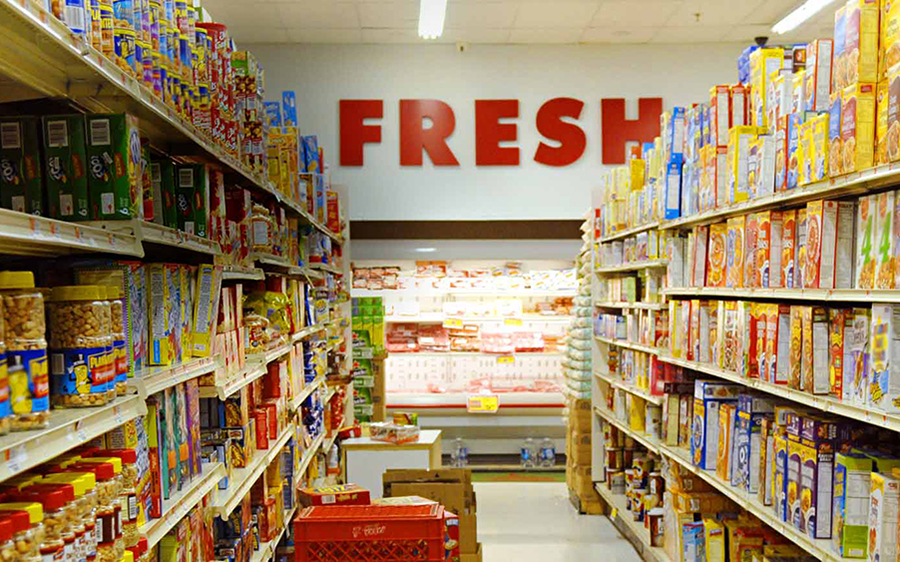The consequence of the pandemic on a company like Nestle Nigeria plc is that despite huge efforts to improve revenues, a higher rate of increase in key costs will erode earnings.
Nestle is a worldwide brand with a distinct reputation and has been a strong pillar of growth for over 6 decades, producing a range of high-quality iconic brands including Milo, Maggi, Golden Morn, and Nescafé, amongst others.
The consumer goods giant has a presence in over 22 African countries and has operated with a customized strategy tailored to the locality they inhabit, depending on its peculiarities.
It uses local ingredients and other technologies that resonate with the local environment and gives autonomy to its local branches based in different countries to make pricing and distribution decisions.
This focused strategy has hitherto harvested results and steady improvements until 2020, at least not so much anyway.
Revenue grew by 3.3% y/y in Q3’20, thanks to improvements in the sales of Beverages – one of Nestle Nigeria’s operating segment, the other being Foods.
Beverage segment as at Q3’2020 improved 12.3% y/y from external revenues, whilst Food segment suffered a 6.4% decline within the same period.
Ironically, the Food segment (particularly Maggi) is dubbed Nestlé Nigeria’s frontier product and biggest market. However, this is where Nestle has faced its toughest competition in recent times from Unilever, Cadbury and many others.
Indeed, the consumer goods industry is one of Nigeria’s finest and competitive, where companies go toe-for-toe for market share and product. Unilever recorded a 25.1% Q-o-Q surge in turnover from its Food segment at the end of Q3’2020. Nestle Nigeria on the other hand, suffered 16.1% decline.
This data automatically confirms the conclusion that Unilever Nigeria Plc directly wrestled this market share primarily from Nestle and a little more from others.
Whilst this may be concerning, it doesn’t suggest any immediate doom for Nestle Nigeria. This is because in the last few years, Nestle Nigeria, to its own fault, has failed to nail down any sort of consistency in its Food segment.
Lose some percentage of market share today, gain some more next quarter and lose some again and just like that. Following this pattern, it is expected that by the release of Q4 results, Nestle may have recovered its 16%. It all depends on how successful the management strategy pans out and if their topsy-turvy progress pattern plays out again, we’ll just have to wait and see.
Nestle is an international brand, a Swiss multinational food and beverage company with over 447 factories across 194 countries and employs around 333,000 people. The company’s strategy has been to enter emerging markets early and strongly before its competitors, investing in people and structures to build a substantial customer base by selling products that suit the local population.
Nestle Nigeria plc in line with this vision, made increased investments in its personnel. This is observed in the 11.8% increase in salary and wages and other welfare and personnel expenses.
In terms of making further investments in structures, in this decade alone, Nestle established its Milo RTD (Ready to Drink) factory and made significant improvements to its ultra-modern distribution centre in Agbara, Ogun state – the Agbara Manufacturing Complex is one of Nestlé’s biggest factories in Africa.
The profit before tax for Nestle Nigeria plc in Q3 2020 was 4.5% less than its feat last year, even though it still closed the quarter with a strong profit position. The extra expenditure incurred on salary, wages and personnel haven’t done much to help its cause just yet.
However, this wasn’t what was solely responsible for their failure to translate improved revenue position to bottom-line growth. The increase in the cost of sales is a culprit.
Nestle allowed an 8.5% increase in its cost of sales position. Analysts have implied this increase resulted from Nigeria’s weakened currency and inflationary pressures. Whatever the case, what is not in doubt is that Nestle Nigeria Plc is well aware of the areas they need to scale up efforts and must immediately devise strategies to do that.
Bottom line
Maggi sales have, hitherto, been their oil-well. The consumer goods giants must ensure to reclaim market share in this segment and maintain consistency and dominance over time.
Furthermore, in Chile, the Philippines, Mexico and various countries where Nestle hold significant share of the market; there is this practise where, as the income level rises in each niche market, Nestlé introduces an upscale version of the same brand to increase its profit level.
This strategy could be borrowed by Nestle Nigeria if the Beverage segment continues its present super-impressive form. Finally, it goes without saying that costs must now be carefully monitored, especially in generating sales.























Great piece,this made for a nice read.
Keep up Ekenergy ?
Very insightful dear….Keep it up..I learnt alot
Very in-depth and comprehensive analysis. Great job!
Great insight into the industries’ giant!!!